Ten stories to follow in 2015
The riders and events who will make the news in the next twelve months
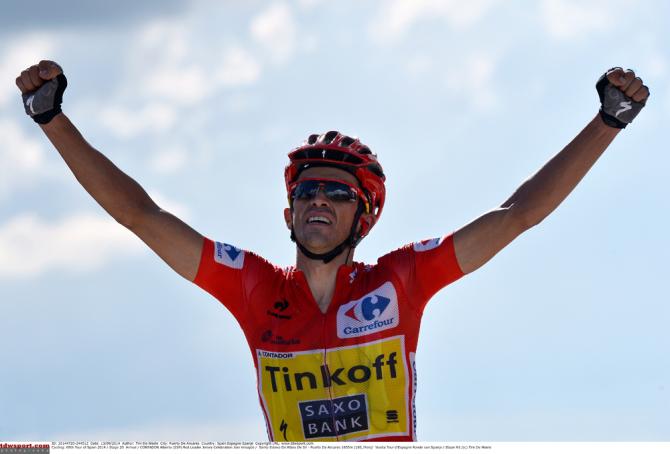
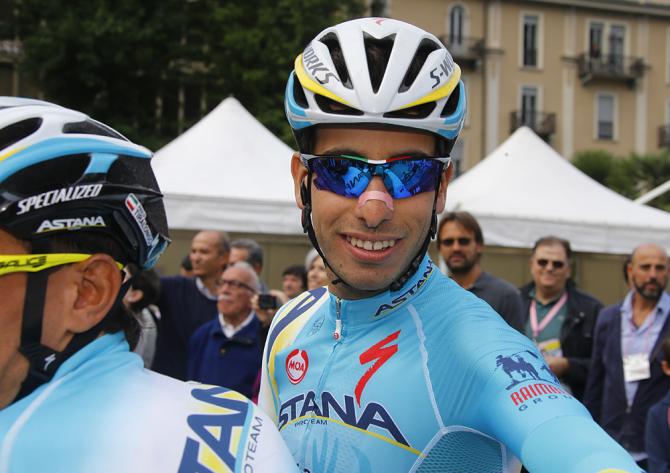
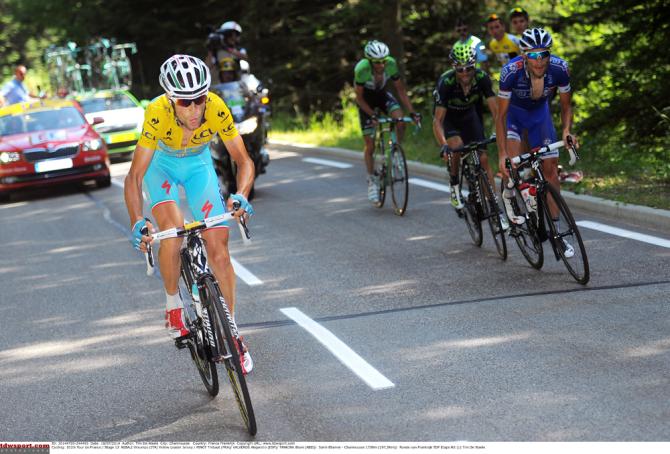
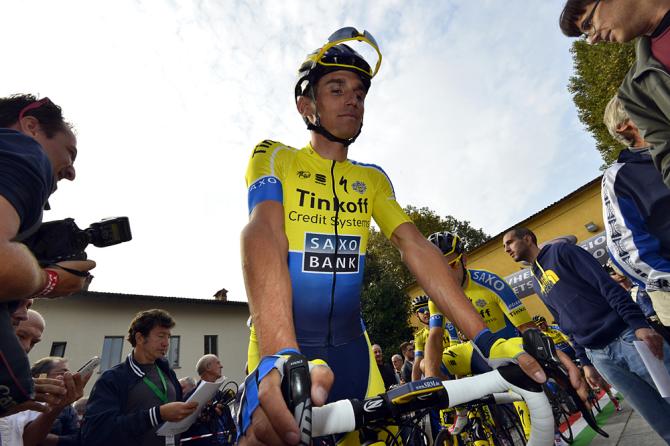
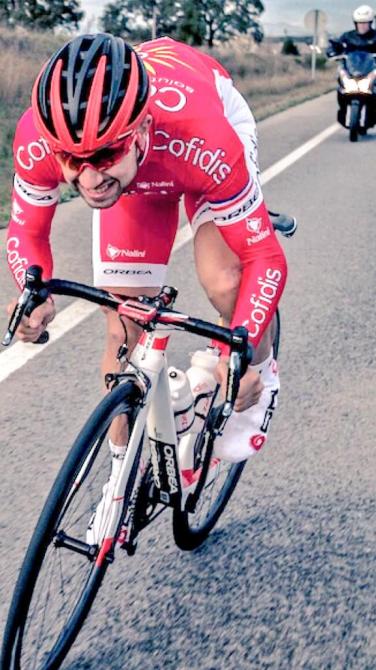
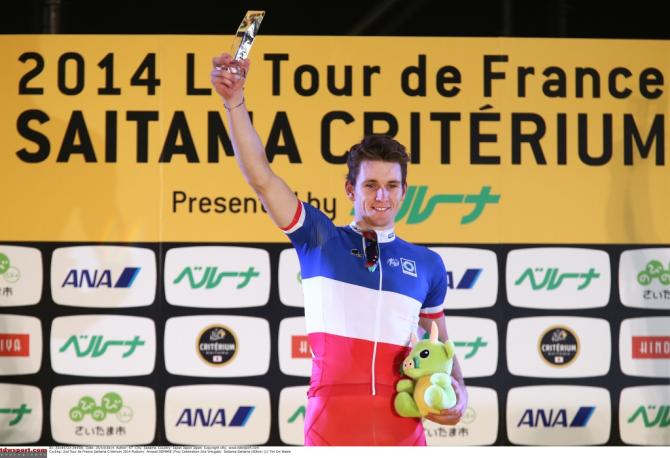
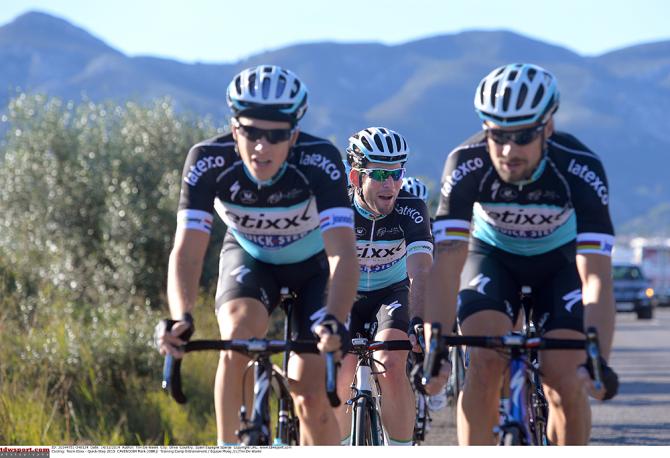
Contador and the Giro-Tour double
Alberto Contador may not have much company in the putative Grand Tour Challenge but he will have the consolation of owning the stage racing narrative for the first half of 2015 as he bids to become the first man since Marco Pantani in 1998 to win the Giro and Tour in the same season. Chris Froome, Nairo Quintana and Vincenzo Nibali each politely rebuffed Oleg Tinkov's indecent proposal to ride all three Grand Tours this season but rather than fall in line, Contador has opted to press on with riding the Giro and Tour at least.
RCS Sport will be relieved to have Contador on board for a Giro that otherwise looked dangerously shy of star power and while the opening week of the corsa rosa is never straightforward, the organisers have done their bit to facilitate the double by shoehorning most of the difficulties into the second half of the race. Contador will be the irresistible favourite in May although with Rigoberto Uran and Fabio Aru both on hand, he can't risk arriving in Italy undercooked.
Raising his game once again barely a month later to beat a fresh Froome, Quintana and Nibali seems a very tall order indeed, but then again Contador has spent the bones of a decade turning in startling performances to defy seemingly overwhelming odds, such as his improbable return from a fractured tibia to win the 2014 Vuelta.
Aru ready to rumble?
The more Vincenzo Nibali and Fabio Aru insist that they can coexist on the Astana team, the more the Italian press convinces itself that they can’t. Just last month, for instance, BiciSport magazine devoted some forty pages to an analysis of the duo's future together, concluding that a fracture is evident among Astana's Italian group.
For 2015, at least, Astana believe they have found a solution to the problem. Aru should have free rein at the Giro d'Italia, while Nibali will return to the Tour de France to defend his title there. So far, so straightforward, but Aru is also hoping for a Tour debut: if he betters his 2014 Giro result of third, questions are bound to be asked about the hierarchy of Astana's line-up come July.
Get The Leadout Newsletter
The latest race content, interviews, features, reviews and expert buying guides, direct to your inbox!
Even without the potential internal tensions, exaggerated or otherwise, Aru's 2015 campaign is worth following with interest. Curiously for a young professional, Aru eschewed the normal school of hard knocks and raced only 13 days before the Giro last year, preferring to spend long spells at altitude at Sestriere. This time around, he is set to come down from the mountain more often, with Paris-Nice apparently an early target. It will be intriguing to see how the change in preparation affects the Sardinian. And, hardly coincidentally, Nibali, too, is keen to start his 2015 season on a winning note after a low-key start to 2014.
Roman Kreuziger's biological passport case
Given the speed at which sports justice tends to operate, it's hardly a surprise that one of the stories of 2014 will drag on (long) into the new season. Roman Kreuziger was withheld from the Tour de France by his Tinkoff-Saxo team after the UCI asked him to explain fluctuations in his biological passport, then suspended by the UCI in August only to be cleared by the Czech Olympic Committee a month later.
The UCI and WADA have since appealed the matter to the Court of Arbitration for Sport and a CAS hearing on the matter is due to take place at some point in the new year. Kreuziger has already posted a large chunk of his defence and accompanying data on a specially-built website. Yet for all Kreuziger's claims of inadequately-stored samples and hypothyroidism, he must surely realise that precedent is heavily against him. The UCI has yet to be overruled by CAS after identifying a biological passport violation and will feel confident that the fluctuations recorded in 2011 and 2012 are sufficient to condemn Kreuziger. Even so, every time such a case goes all the way to arbitration, it has the potential to torpedo the biological passport.
Hour Record Carousel
Hour record attempts, it seems, are like buses. You wait a decade for a credible tilt to materialise and then four come along all at once. Jens Voigt and Matthias Brändle, of course, have already established new marks after the UCI relaxed the rules on the use of time trial bikes, but 2015 will see riders with genuine time trialling and track pedigree enter the ring.
Jack Bobridge kicks things off in Melbourne on January 31, Rohan Dennis will have a go in Grenchen on February 8 and then Alex Dowsett tackles it in London on February 27, before Bradley Wiggins takes to the track in the summer for his tilt.
We may well have Hour Record fatigue by the end of February but in any case, the challenge is about to enter its most active phase since the back and forth between Chris Boardman, Graeme Obree, Miguel Indurain and Tony Rominger between 1993 and 1996. As of December 31, the record stands at 51.852km, but Francesco Moser reckons that it could ratchet up towards 56km by the time Wiggins has a go. Like it or not, Hour Record hype will be unavoidable in 2015.
Wiggins to Team Wiggins?
As of December 31, Bradley Wiggins' 2015 team had yet to be confirmed though it is effectively certain that he will begin the campaign in the colours of Team Sky and remain on the roster at least as far as Paris-Roubaix in April. It remains to be seen, however, where he finishes the year with Sky expected to announce its development team in the near future, a Continental squad which Cycling Weekly has reported will be known simply as "Team Wiggins."
Under UCI regulations, Wiggins would be free to drop down from Sky to join the Continental outfit in June and it has long been speculated that he will continue his build-up to the team pursuit at the Rio 2016 Olympics by riding for Team Wiggins. Indeed, by that schedule, he could even line up for his tilt at the Hour Record in the colours of the Continental team. On the other hand, if Wiggins again performs impressively at Paris-Roubaix April but falls short of winning, might he be tempted to make one final tilt at the Hell of the North in 2016? Or will his Olympic ambitions and (reported) commitment to Team Wiggins override all? The answers should arrive in the opening weeks of 2015.
Astana audit
Though Astana breathed a sigh of relief when its WorldTour registration for 2015 was confirmed in mid-December, UCI president Brian Cookson warned that its status is still very much provisional, pending an audit by the University of Lausanne in the early months of the year and further revelations from the Padova-based doping inquiry.
The audit process as detailed by L'Équipe last month seems rather unlikely to have Astana unduly concerned about its prospects, but the links between Alexandre Vinokourov and Dr. Michele Ferrari reported by Gazzetta dello Sport will surely be a greater worry – provided, of course, that the UCI receives a copy of the reported 550-page dossier. That said, in 11 years of existence, the UCI has never successfully excluded a team from the WorldTour for purely ethical reasons. The Licence Commission's decision in December hardly suggests that a new precedent will be set in 2015.
The Cycling Independent Reform Commission report
In the afterglow of USADA's Reasoned Decision two years ago, there was a clamour for an insensitively-titled "Truth and Reconciliation Commission" to be enacted as a catch-all solution to cycling's myriad problems. The idea never got off the ground amid the politicking of Pat McQuaid's final year as UCI president but since Brian Cookson took over, the Cycling Independent Reform Commission has quietly gone about receiving testimony on doping practices from 1998 onwards.
CIRC is scheduled to complete its work by the end of February and the full report is due to be published shortly afterwards. At this point, one senses that this particular iteration of the "Truth and Reconciliation" idea will not involve the kind of public airing of dirty laundry expected in late 2012. Instead, it seems more likely that any findings will be used as a starting point for future reform rather than as a means of imposing retro-active sanctions, but one expects – indeed, one hopes – that the CIRC report will make for required reading for all involved in cycling.
Bouhanni versus Démare
It's been bubbling for several years – all the way back to their time as amateurs, in fact – but the intense rivalry between Nacer Bouhanni and Arnaud Démare is finally out in the open in 2015. After an uneasy cohabitation at FDJ over the past three years that saw them take a French title apiece and take turns at riding the Tour, France's two best sprinters go their separate ways this season.
After falling out with FDJ manager Marc Madiot, Bouhanni has jumped ship to Cofidis, where he will seek is guaranteed his place in the Tour team and the chance to lead the squad in the Spring Classics after being overlooked in favour of Démare in 2014. For his part, Démare will look to continue his development on the cobbles while also finally breaking his duck in the Grand Tour sprints after a low-key Tour debut last July.
Their first head-to-head clash of 2015 is set to come at the Tour of Qatar in February and theirs promises to be a year-long battle for supremacy in the sprints and in the mind of French national coach Bernard Bourreau. Both men will fancy their chances of making an impact at the Worlds in Richmond, but they're aware too, that there may be room only for one.
Cobbled classics – the next generation?
It's a statistic we trot out at every opportunity but it bears repeating. In the 20 editions of the Tour of Flanders and Paris-Roubaix since 2005, all bar three have been won by Fabian Cancellara, Tom Boonen or one of their teammates. (For the record, the exceptions are Alessandro Ballan's 2007 Flanders win and the spring of 2011, when Nick Nuyens and Johan Vansummeren upset the odds.)
In short, the big two of Cancellara and Boonen have utterly dominated the cobbled classics for the past decade: Boonen leads 7-6 in cobbled monuments, though Cancellara's 2008 Milan-San Remo win brings him level overall. While they were again to the fore last April – Cancellara claimed another Ronde, Boonen helped Niki Terpstra win Roubaix – there are signs, too, that their joint reign is drawing to a close, or at least it seems that the younger generation is finally ready to compete at their exalted level.
Both Boonen and Cancellara will be 34 years of age by the time the cobbled classics come around this spring and while they remain the men to beat, their rivals no longer line up on the first two Sundays in April mentally prepared to race for third place. Sep Vanmarcke and Greg Van Avermaet, in particular, look ready to make a step up and land big wins, while Peter Sagan will hope to get back on track under the tutelage of Bjarne Riis at Tinkoff-Saxo. Team Sky, meanwhile, delivered a much improved spring campaign in 2014 and will expect still more from Ian Stannard and Geraint Thomas – not forgetting Bradley Wiggins – this time around. A fascinating spring is in store.
Cavendish: The once and future king?
Mark Cavendish has been a newsmaker in every year of his professional career but even by his standards, 2015 looks set to be a particularly crucial season. For one thing, he is in the final year of his current deal at Omega Pharma-QuickStep and after illness ruined his spring and a crash brought a premature end to his 2014 Tour, Cavendish will want to get off the mark early and often before he begins negotiations with Patrick Lefevere.
More importantly, Cavendish is looking to regain the unofficial crown of best sprinter in the world after being usurped by Marcel Kittel in the past two seasons, although it should be noted that since the 2013 Tour, the pair have rarely faced off in a head-to-head. Writing off Cavendish has proved an utter folly over the years – witness how he bounced back from troubled starts to the 2010 and 2011 campaigns, for instance – but the Manxman enters the new year with a degree of uncertainty. Three years ago, Cavendish knew that on his best form he was all but unbeatable, but with an ever-improving Kittel on the scene, that equation isn't quite as straightforward in 2015.
With the Rio 2016 Olympics on the horizon, it will be fascinating, too, to see how much time Cavendish spends on the track.